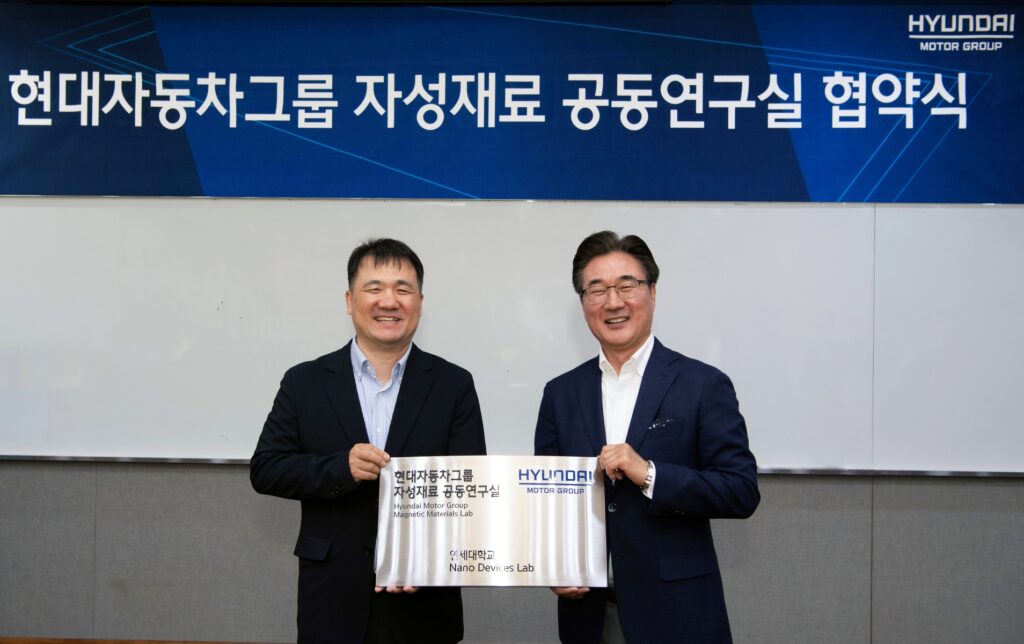
Hyundai and Kia have established the Hyundai Motor Group Magnetic Materials Joint Research Centre at Yonsei University in Seodaemun-gu, Seoul, to enhance the competitiveness of permanent magnet technology, a key component of electric vehicles.
The joint research lab aims to secure technologies that can replace and recycle rare earth materials, which are key raw materials for the electrification era. As the transition to electrification accelerates, the demand for rare earths such as neodymium permanent magnets, which are used in the core components of EV motors, is also increasing, but some countries are tightening regulations on the import and export of rare earths due to environmental pollution caused by the production process.
Therefore, securing magnetic material technologies that can replace existing materials and recycling technologies that can recover and recycle used parts are emerging as important issues.
Hyundai-Kia is accelerating the internalisation of magnetic material technology with major Korean universities to respond to resource supply and demand risks and secure leadership in electric vehicle material technology. Hyundai will operate a joint research lab with seven universities, including Yonsei University, Seoul National University, Sungkyunkwan University, Pusan National University, Pukyong National University, Chungnam National University, and Chungbuk National University, and support research activities for a total of three years.
The joint lab will conduct research on non-rare earth magnetic materials that can replace rare earth materials, rare earth recycling research that recovers and recycles rare earths from motor units, and magnetic property evaluation research that can improve the magnetic measurement of materials. In particular, researchers from the Hyundai-Kia Basic Materials Research Centre will participate in each project to accelerate joint research and create synergies in convergence technologies.
"It is significant that this is the first joint research centre established by Hyundai and Kia in the field of magnetic materials," said Hyun-Soo Son, head of Hyundai-Kia Energy Materials Research Center. "We will actively collaborate on this project to accelerate the internalisation of magnetic material technology, a key component of electrification."
"Future mobility is attracting attention as a very important technology field that will determine national competitiveness in the future," said Lee Woo-young, professor in charge of the joint lab at Yonsei University. "The joint lab will provide a solid foundation for Korean technology to lead the world in motor magnetic material technology, which is the core of mobility."
Meanwhile, Hyundai-Kia is continuing to collaborate with top universities in Korea and abroad to secure future mobility competitiveness, including establishing a joint ultra-high resolution radar lab and an on-chip LiDAR lab.
Article roadtesting editorial (dhseo1208@gmail.com)
Photo Hyundai Motor Company








